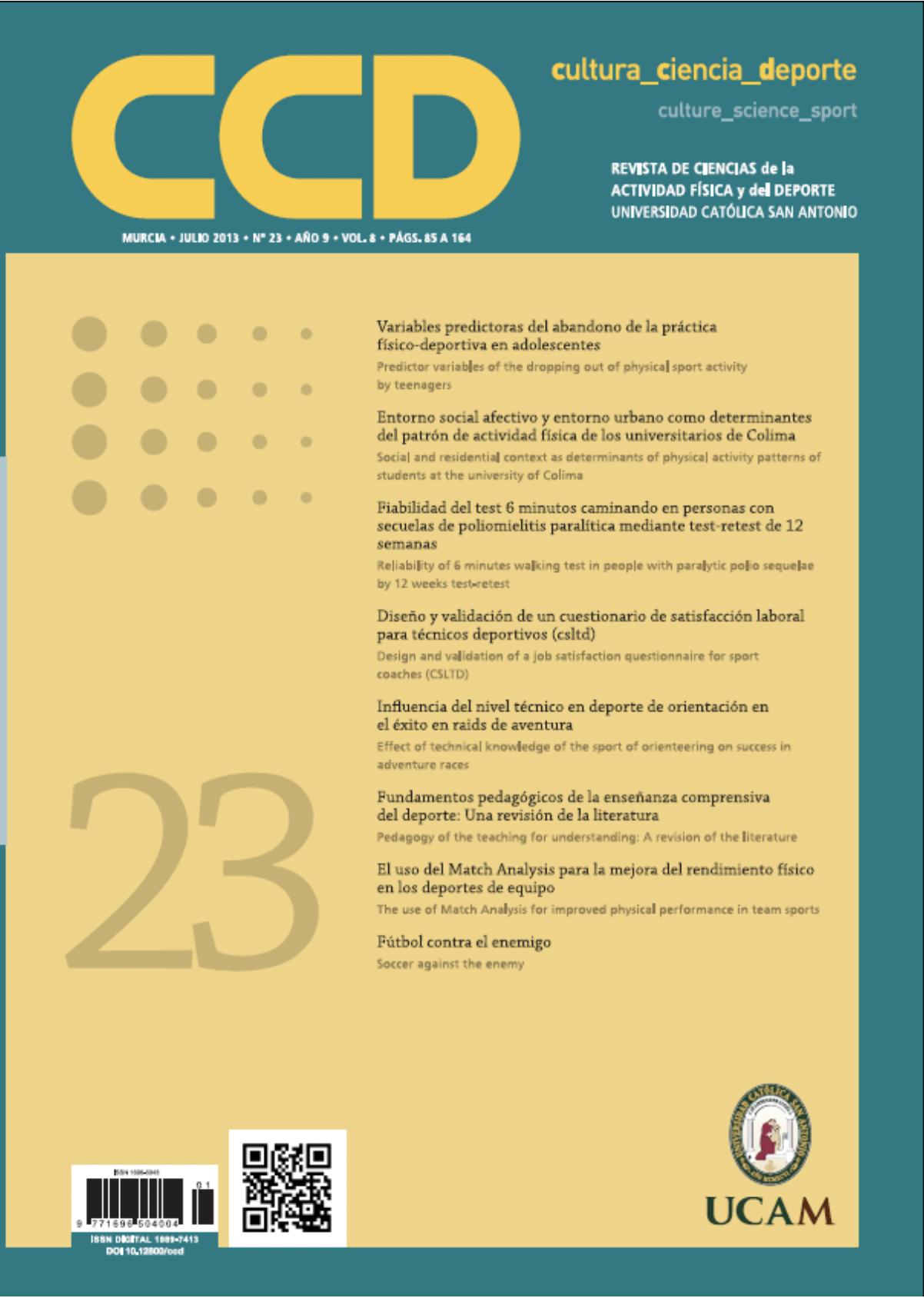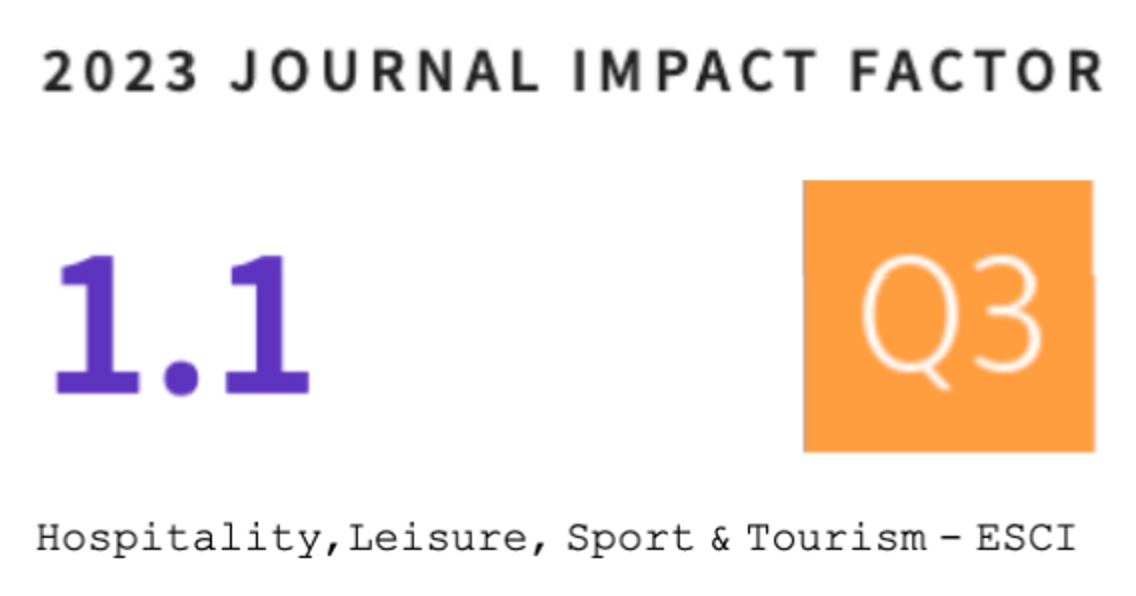Entorno social afectivo y entorno urbano como determinantes del patrón de actividad física de los universitarios de Colima. (Social and residential context as determinants of physical activity patterns of students at the university of Colima).
DOI:
https://doi.org/10.12800/ccd.v8i23.298Abstract
http://dx.doi.org/10.12800/ccd.v8i23.298
El objetivo de este trabajo es evaluar el grado de asociación entre el contexto social (familia y amigos) y las características del entorno urbano de residencia con el nivel de actividad física de los estudiantes universitarios de Colima. En el estudio han participado 356 estudiantes de la Universidad de Colima, el 51.1% mujeres y el 48.9% hombres, con edad media de 20,98 ± 2,24 años. Se realizó un estudio transversal a través de una en- cuesta que evaluó la influencia del apoyo del entorno social afectivo y de las condiciones del entorno urbano en la práctica de actividad física habitual (cuestionario IPAQ versión corta) y de la actividad física y deportiva en el tiempo de ocio. Se han calculado las Odds Ratio (95% IC) a través de un modelo de regresión logística multinomial, ajustando la relación entre los indicadores estudiados a las variables sexo, edad y ciclo educativo. El contexto social y el entorno urbano condicionan el patrón de actividad física de los estudiantes universita- rios de Colima.
Palabras clave: Actividad física, apoyo social, familia, entorno, estudiantes universitarios.
===
Abstract
The aim of this study was to evaluate the degree of association between social context (family and friends) and the characteristics of one´s residence with the physical activity levels of university students at Colima University, Mexico. The study included 356 students, 51.1% women and 48.9% men, with a mean age of 20.98 ± 2.24 years. A questionnaire (IPAQ, short version) was employed to evaluate physical activity patterns and to assess perceived social and family support. Home environmental characteristics were also determined by this questionnaire, and they comprised the influence of perceived neighbourhood safety, availability of transportation, proximity to sports facilities, and economic access to leisure physical activity settings. Odds ratios were calculated (95% CI) using a multinomial logistic regression model, using sex, age and education level as confounding variables. Residential context and perceived social support influences the physical activity patterns of college students in Colima.
Key words: Physical activity, social support, family environment, college students.
Downloads
How to Cite
Issue
Section
License
The authors who publish in this journal agree with the following terms:
- The authors retain the copyright and guarantee the journal the right to be the first publication of the work as well as licensed under a Creative Commons Attribution License that allows others to share the work with recognition of the authorship of the work and the initial publication in this journal.














